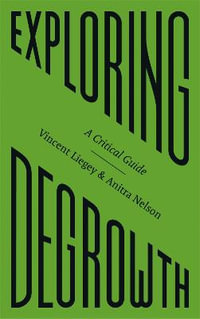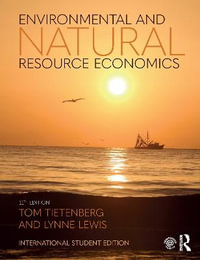
Production, Growth, and the Environment
An Economic Approach
By: William L. Weber
Hardcover | 2 September 2014 | Edition Number 1
At a Glance
Hardcover
$506.25
Aims to ship in 10 to 15 business days
ISBN: 9781482243055
ISBN-10: 1482243059
Published: 2nd September 2014
Format: Hardcover
Language: English
Number of Pages: 360
Audience: Professional and Scholarly
Publisher: Taylor & Francis Inc
Country of Publication: US
Edition Number: 1
Dimensions (cm): 23.4 x 15.6 x 2.54
Weight (kg): 0.66
Shipping
| Standard Shipping | Express Shipping | |
|---|---|---|
| Metro postcodes: | $9.99 | $14.95 |
| Regional postcodes: | $9.99 | $14.95 |
| Rural postcodes: | $9.99 | $14.95 |
How to return your order
At Booktopia, we offer hassle-free returns in accordance with our returns policy. If you wish to return an item, please get in touch with Booktopia Customer Care.
Additional postage charges may be applicable.
Defective items
If there is a problem with any of the items received for your order then the Booktopia Customer Care team is ready to assist you.
For more info please visit our Help Centre.
You Can Find This Book In
This product is categorised by
- Non-FictionEconomicsEnvironmental Economics
- Non-FictionLawLaws of Specific JurisdictionsEnvironmentEnvironment Law
- Non-FictionEarth Sciences, Geography, Environment, PlanningThe EnvironmentConservation of The Environment
- Non-FictionScienceBiology, Life SciencesLife Sciences in GeneralEcological Science
- Non-FictionEngineering & TechnologyEnvironmental Science























